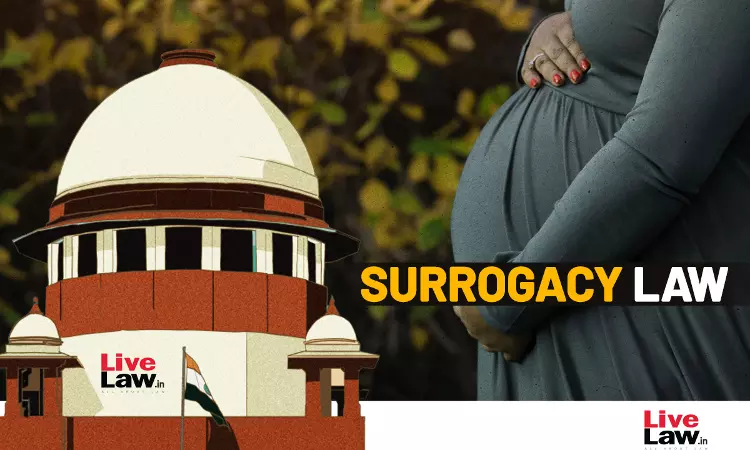'Difficult To Bring Up A Child In Your 60s': Supreme Court On Challenge To Age Limit Under Surrogacy Act
Sheryl Sebastian
6 Dec 2023 8:55 AM IST

Next Story
6 Dec 2023 8:55 AM IST
The Supreme Court on Tuesday orally expressed its reservations about the applications filed before it by persons wanting to have a child through surrogacy under the Surrogacy (Regulation) Act, 2021 who are beyond the age limit prescribed under the Act. "There are cases where people in their 60s are saying they want children. It is so difficult to bring up a child at that age. Once a child...
